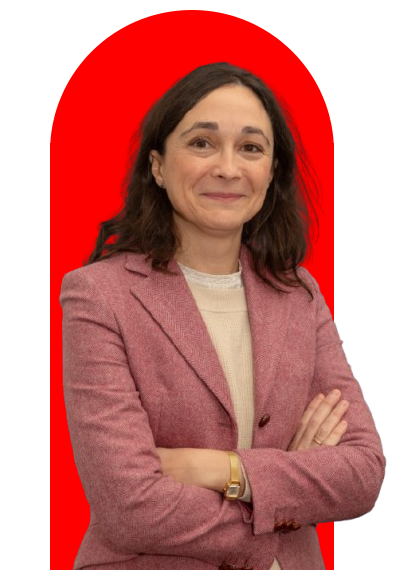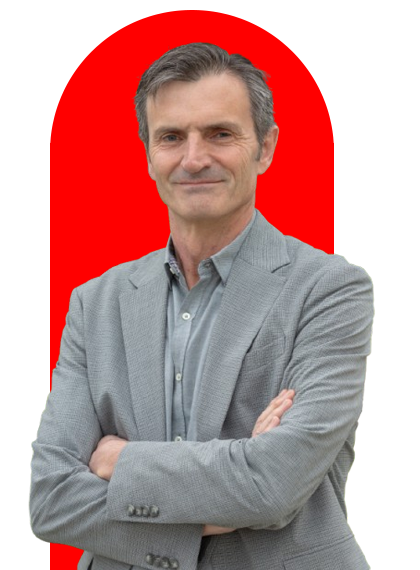Groups of research
DIGITAL NEWS AVERAGE RESEARCH GROUP
Journalism can no longer exist in isolation from the digital world. The study of the profession's expressions on digital platforms is therefore essential to design business and editorial strategies that can be implemented by cybermedia in an environment threatened by information disorders.
It covers topics such as trust and audience behavior with new digital media, journalistic convergence in this ecosystem and the opportunities and challenges posed by generative artificial intelligence tools for journalism. Its different types of publications range from strictly academic to professional subject reports. The most recognized of all: the Digital News Report Spain, produced in coordination with the University of Oxford.
More information
PILAR MARTÍNEZ COSTA, COORDINATOR
"Digital journalism is three decades old and faces constantly evolving challenges. In an environment of increasing misinformation and polarization that has eroded public trust in the media, the Digital News average Group's study of these challenges, with a approach focus on quality and ethics, is core topic to recover the professional identity of journalists and to achieve media sustainability."

RUTH GUTIERREZ, COORDINATOR
"Many of the models, references and behaviours (exemplary or not) that influence people's lives are born in representations. Knowing poetics and mythifications is essential to understanding the heart of culture in all its dimensions."
MYTHMAKING AND HEROISM IN NARRATIVES
MYHE's research encompasses the study and analysis of audiovisual representation and its possibilities to shape the social imaginary through fiction. Thus, it studies the mythification of historical characters and personalities, historical facts and ideas through fictional discourses and the presentation of a culture and its protagonists as models. Hence, the study of representation is linked to the study of representation from the theory of mythmaking (also known as storytelling in its non-modeling version) together with the study of heroic models, opinion leaders or figures that fulfill an exemplary function.
The group theorizes and supports the poetic and rhetorical ways of creating myths or stable stories as well as the analysis of heroes and modeling figures. It also analyzes the epistemological and communicative role of fiction in the representation of personalities, time periods, cultures, traditions and its role in forging mentalities and behaviors, which are then translated into cultural changes.
More information
SCIENCE COMMUNICATION
The representation of science in the media plays a fundamental role in reaching society as a whole. The democratization of scientific and health informative contents makes its study increasingly important due to the informative disorders brought by the digital environment.
This interdisciplinary group of researchers from the social and natural sciences addresses issues such as climate change communication, the importance of narratives in science knowledge dissemination and guidelines to counteract phenomena such as misinformation on health and environmental issues.
More information

WELCOME LION, COORDINATOR
"Science and technology play an increasingly important role in society. That is why researchers have the responsibility to make our work known to all citizens, in a way that is interesting and understandable to everyone."

ELENA GUTIÉRREZ, COORDINATOR
"The research of the group INCOMIN has sought since 2015 to delve into what characterizes a strategic management of communication if it is to contribute to the good governance of organizations. That is why the interdisciplinary perspective that brings together management business and communication offers a unique opportunity to understand complex phenomena; especially in a business context where there is a need to deepen stakeholder relations and in particular social listening."
COMMUNICATIVE INNOVATION IN INSTITUTIONS (INCOMIN)
Strategic communication plays a fundamental role in the innovation processes of companies. The interdisciplinary group INCOMIN, which was a pioneer in Spain in analyzing the communicative management in business social innovation projects, focuses its study on the catalytic role of communication for the creation of culture in organizations.
Its research collaborates with the business network and seeks to establish action frameworks for different business strategies through the management of stakeholders, dialogue and decision making. Through qualitative and quantitative methods, it analyzes the strategic and social capacity of the communications profession, as well as the importance of the differentiating value of the companies in the digital era.
More information
COMMUNICATION MARKETS AND COMPANIES (GIMECO)
The consumption of information and entertainment content by citizens has taken a turn since digitalization. This affects business models and the way media companies relate to consumers. In the face of constant change, the study of communication markets and companies is essential. This is demonstrated by the interdisciplinary GIMECo research of the School Communication together with researchers from other Schools as Economic and Business Sciences and management Applied UNAV other universities such as Los Andes (Chile) and Panamericana (Mexico).
Its results are addressed to regulators and company managers, with data seeking to be useful for the development of multiplatform strategies and new business models focused on the needs and desires of Username.
More information

MERCEDES MEDINA, COORDINATOR
"Understanding the rules of skill and the business of media is essential to measuring the impact they have on society."

MARÍA JIMÉNEZ, COORDINATOR
"The group of research Narrative, Violence and report aspires to make relevant contributions in the areas of public report of our violent past and the prevention of violent radicalization, especially focused on the younger generations."
NARRATIVE, VIOLENCE AND REPORT
The main question for this group of research interdisciplinary is the story of terrorism and how it is framed in different loudspeakers of society to shape a collective report . Thus, they study the possibilities that fiction and journalism have to offer a more effective representation of reality and the fundamental role that their narratives play for the training of democratic societies.
The researchers focus their study on the testimonies of victims in the communication of violence, both from the academic field and in literature and audiovisual fiction and non-fiction. They also analyze the responsibility of the media in the face of social phenomena such as hate speech, political violence and radicalization.
More information
JOURNALISM, POLITICAL COMMUNICATION AND DEMOCRACY
The role of the media in the perception and understanding of social phenomena such as polarization, hate speeches or suicide is the object of study of the interdisciplinary group PerCompolDem. Aimed at suggesting solutions to the challenges of the new information environment, its research addresses the susceptibility of public opinion to polarizing discourses, disinformation and journalistic coverage.
The group understands the communication environment as a confluence of actors, tools, methods and contexts, and therefore defends the relationship between information processing, politics as discipline and the establishment of democracy.
More information

JORDI RODRÍGUEZ VIRGILI, COORDINATOR

MARÍA NOGUERA, COORDINATOR
"Audiovisual narratives are the stories of our time. In a way, we recognize ourselves in them. Investigating how they are constructed from a dramatic and aesthetic point of view involves not only delving into the way in which cinema and television respond to complex questions of contemporary man, but also unraveling the creative decisions that are put into play for this purpose."
NARRATIVE AND AUDIOVISUAL AESTHETICS
Film and television have a special power to capture the essence of our times. Audiovisual stories are relevant because they place us in front of the changes and problems of today's world, shaping shared thoughts and emotions. Building on the heritage of much of the academic programs of study so far carried out in the department of Culture and Audiovisual Communication, the NEA's research focuses on the analysis of cinematographic and television works from a narrative and aesthetic prism. The focus is placed on the construction of the story and the audiovisual image with a double intention. On the one hand, to attend to the anthropological dimension that underlies films and series through a hermeneutic approach. And, on the other hand, to consider the intrinsic nature of the audiovisual fact, its trends, continuities and ruptures, genres, formats, and frontiers and hybridizations with other forms of artistic expression. In final, this group revolves around the study of audiovisual language as an expressive form in relation to the human.

